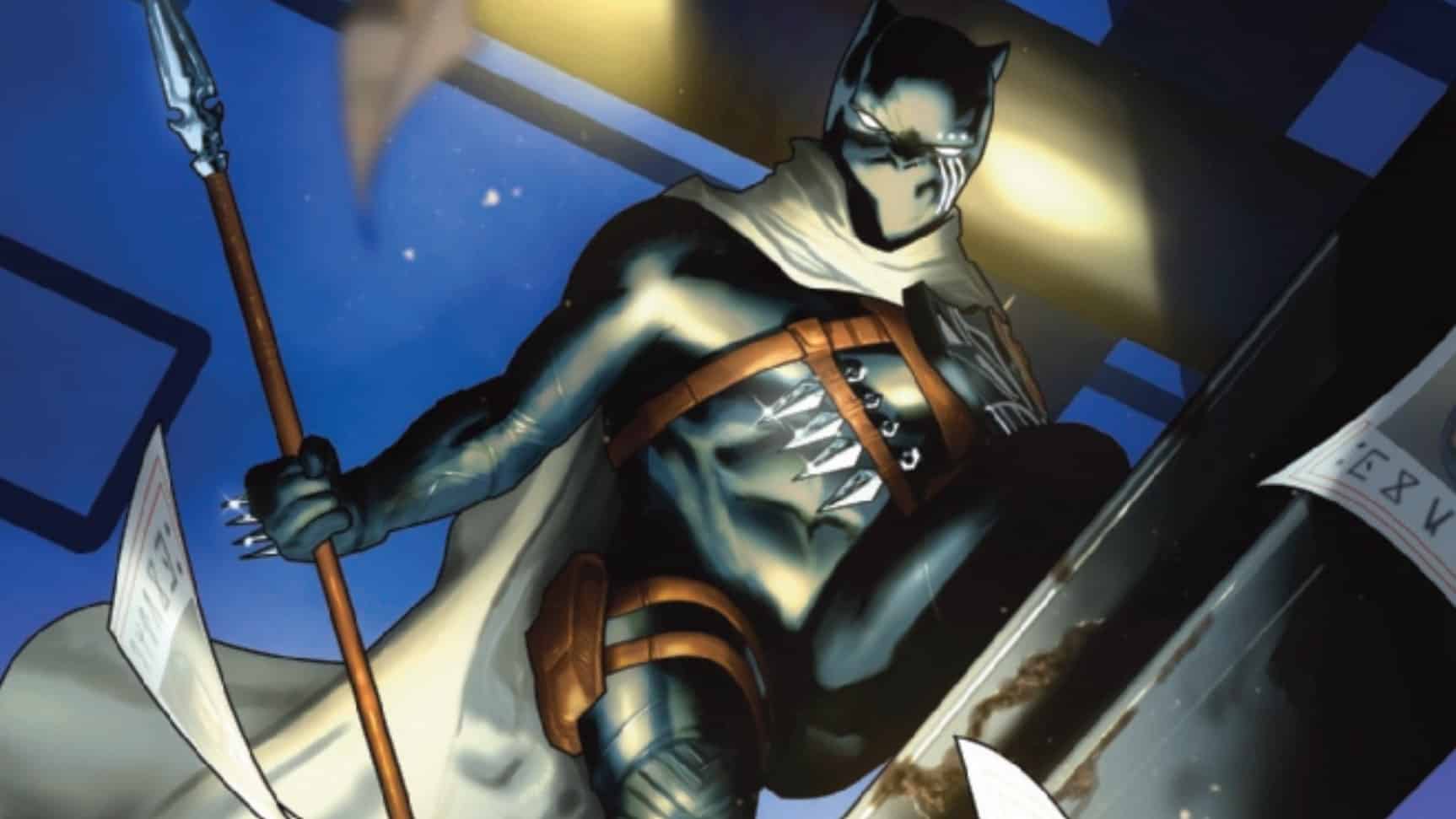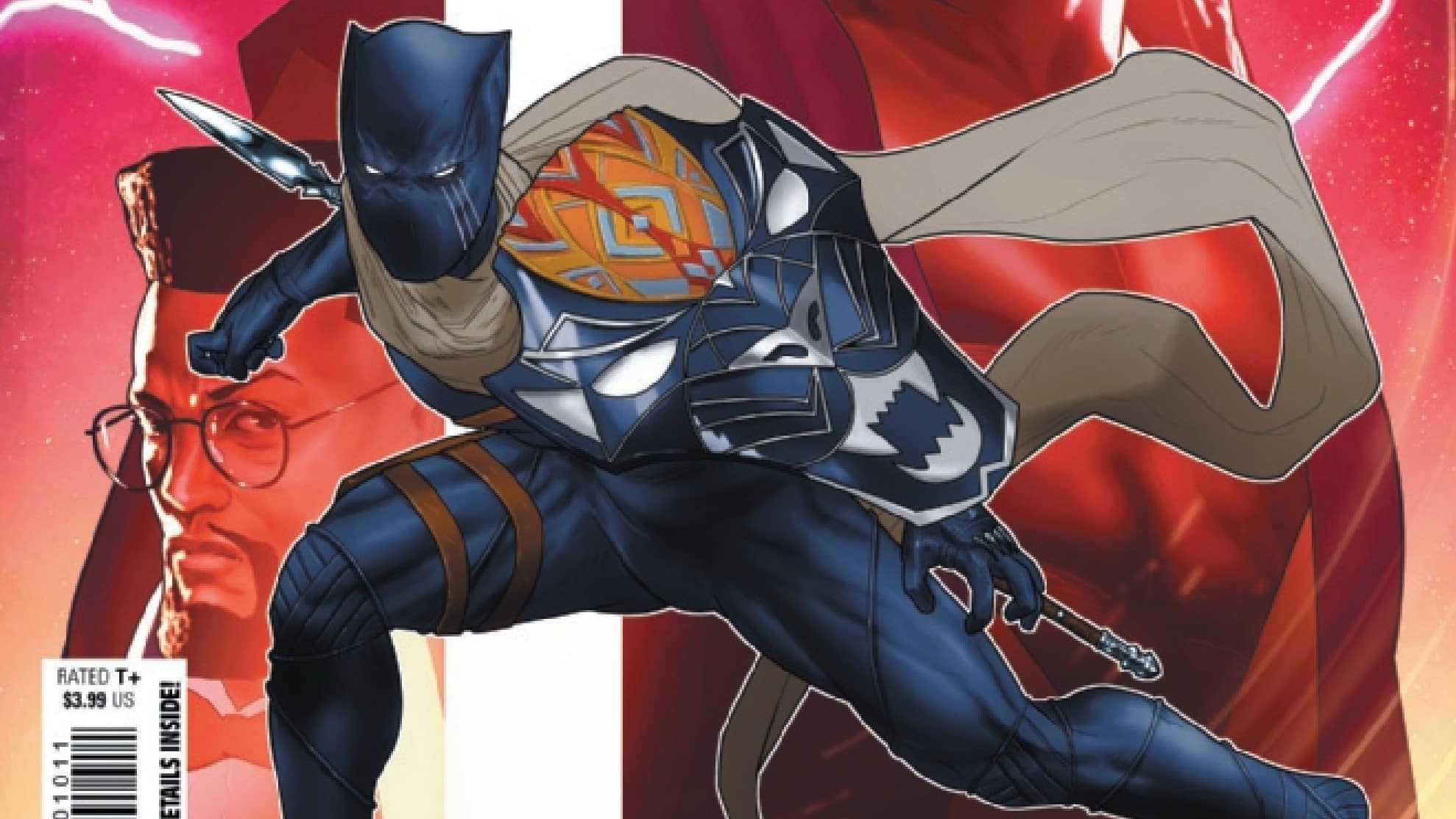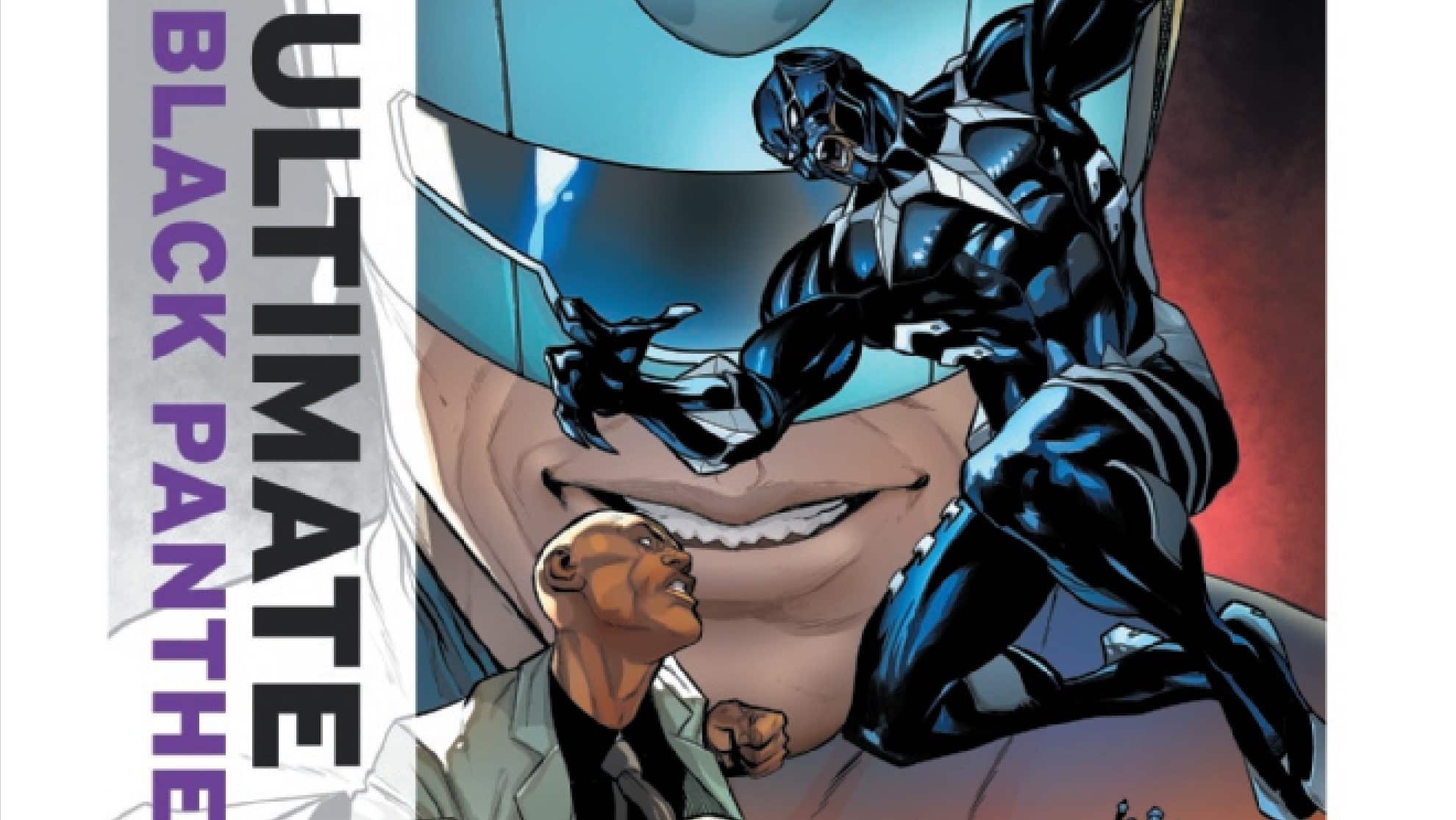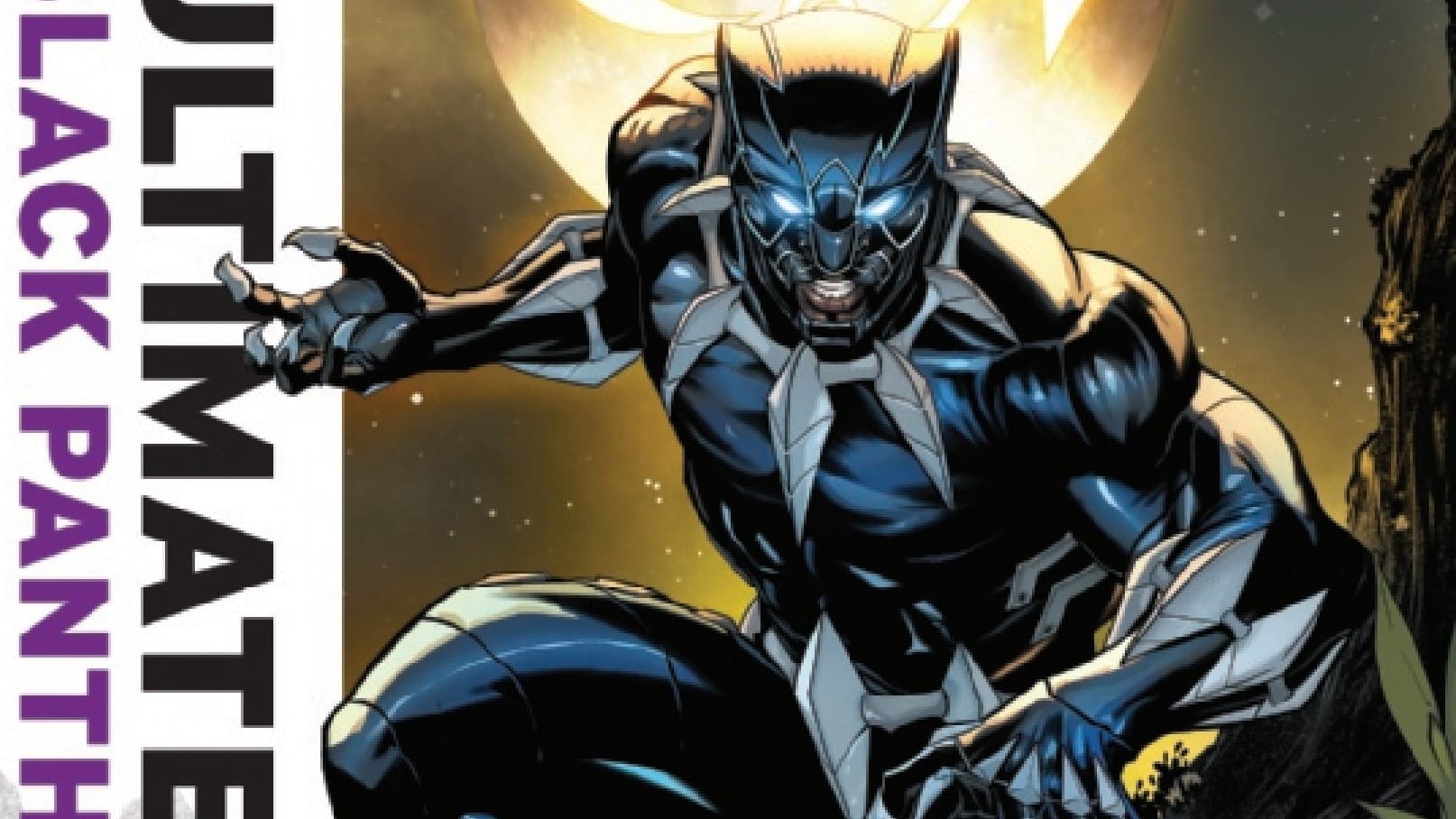Banished from the throne and a fugitive in his own homelands, T’Challa still can’t leave Wakanda without its sworn protector. A king without a crown, he finds new purpose lurking the streets and shadows of the Wakandan city that bears his father’s name. Black Panther #1 is written by Eve Ewing, drawn by Chris Allen, inked by Allen and Craig Yeung, colored by Jesus Aburtov and lettered by Joe Sabino.
The gentleman welcomes the man dressed as the Black Panther into his home. He’s weary: it’s been a long day, helping people in the Wakandan city of Brinin T’Chaka attend to their daily legal matters. He is tired, but not too tired to help yet another person.
Once inside, he jokes with the impostor while pouring a cup of tea: What would the royal family think of you impersonating the once king of the country?
The impostor takes off his mask.
He is no impostor.
He is T’Challa.
The glass spills on the floor.
Immediately, the man falls to his knees. Wakanda is a democracy now, yes, but old habits die hard and memories fade slower than reputations.
The King is still here.
During their banter, as T’Challa explains why he’s running around the city, stopping purse snatchers and stalking young lawyers, he gets on his knees to pick up the pieces of the broken cup.
The king made a mess.
The king seeks to clean it up.
Welcome to Black Panther #1.

Every writer imprints their mark on the work, from Christopher Priest’s cynicism, to Ta-Nehisi Coates’ intellectual optimism. John Ridley’s just-ended 15 issue arc should be remembered for introducing powerful female characters and vibranium-enhanced heroes. However it will likely be remembered for an unlikable characterization of the king: his throne, partner and pride stripped from him, with little to endear him to his country — and to the reader.
Thus we start with our King, literally and metaphorically at his lowest. With new writer Dr. Eve L. Ewing (Ironheart, Champions, 1919) and new illustrator Chris Allen, we are left to wonder how soon and how high can and will T’Challa bounce back.
Very soon and very high, apparently.
As the first issue of a new run, the work has to do a lot of things at once: establish a tone, give a new reader an understanding of where the character is without rehashing the whole story, and set up the new normal from where new stories under a new voice can arise.
Ewing does this expertly here. In the first scene, as T’Challa narrates his thoughts, we see the Panther stopping a robbery. This should be a good thing, and yet we realize that by interfering, he prevented a young man from saving his own community, and earning his prize.
Thus the template for the Panther: How much does “helping” help the people? He’s here to find out.
Everything looks beautiful here. Colors are bright even as all action takes place at night, with a now-familiar purple hue highlighting the Panther’s black suit and backgrounds. The design of the Panther is perfect: His familiar black uniform adorned with a ragged cape and shoulder shield. He looks like an African anime ninja, which may be the highest praise one can give a design. Faces give detailed expressions, though most haircuts here look like bowl cuts — a mortal sin for any Black illustrator. That said, T’Challa’s beard is back, so we’ll call it a wash.

The plot: T’Challa protecting a forgotten city (one that happens to be windy, no doubt a small hat tip to the writer’s home of Chicago), stalking foes from rooftops, seeking out a friend of his deceased father to give support, with a female-presenting burglar with a whip making an appearance, certainly feels, well, familiar.
Also familiar: a T’Challa who emotes, who’s humble, who thinks, who can take down foes quickly.
Familiarity is not a bad thing. Not in the least bit. As a matter of fact, familiarity is welcome here, and is largely why this issue feels so much better than the previous iteration. There is growth from his trials; there is still power, mixed with shame and anger in his punches.
There is depth there.
There are also some large questions being asked in the background: What is the role of democracy? What happens when democracy is messy? In a land of abundance, how do people feel about “only” having the necessities?
Do people need a protector? Do people need the king?
At times, it was hard to tell if Ridley actually liked the Panther character or the king alter ego; there’s no question that Ewing has an affinity for him, and that affinity, that respect, is what pushes this piece forward.
No, it’s not perfect. It’s not particularly groundbreaking or extravagant. But it is grounded with heart and empathy. It’s thoughtful, with completely fleshed out characters and an intriguing storyline.
This will all feel familiar to those who may have taken a break, and also to those who appreciated Ridley’s less intellectual tone (as compared to Coates’ five-year run).
And familiarity is a very good thing.
Welcome back, Black Panther.
Welcome home.
A proud New Orleanian living in the District of Columbia, Jude Jones is a professional thinker, amateur photographer, burgeoning runner and lover of Black culture, love and life. Magneto and Cyclops (and Killmonger) were right.
Find more of Jude’s writing here.






